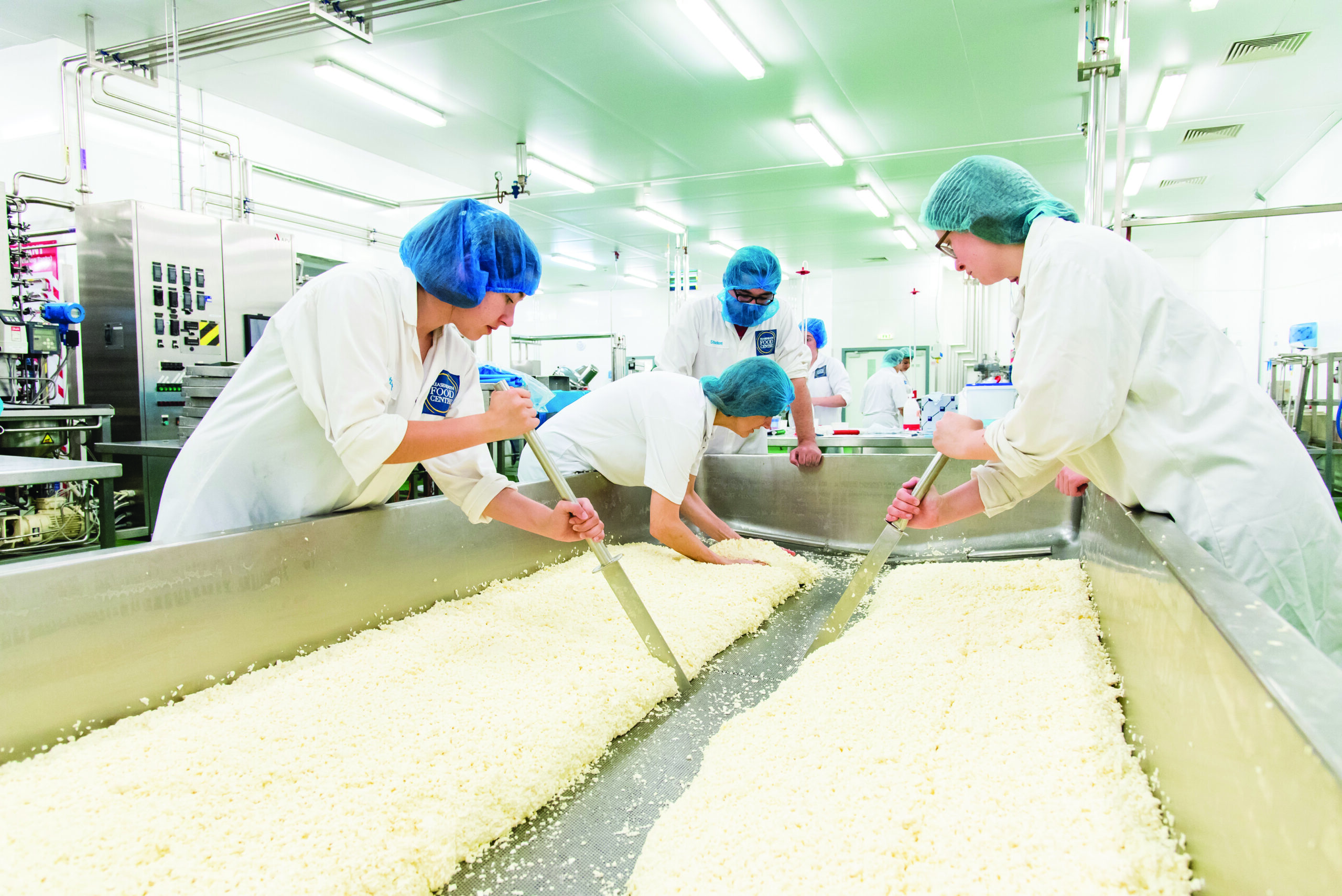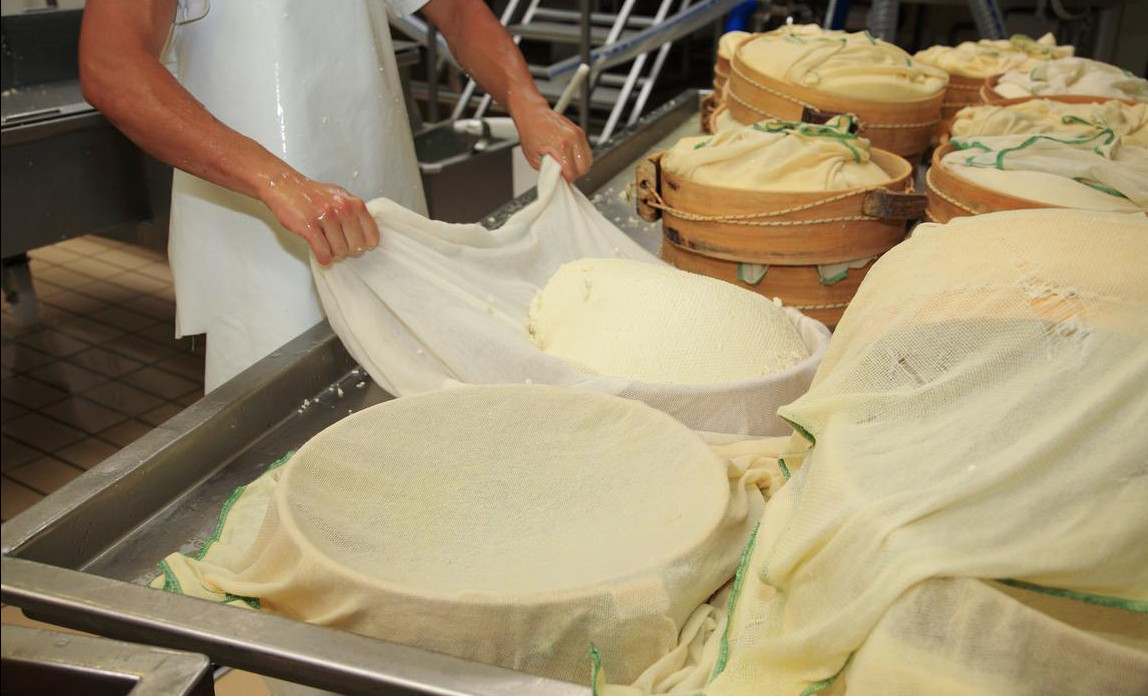Cheese Factory Melbourne: Experience the Art of Cheese
Cheese Factory Melbourne: Experience the Art of Cheese
Blog Article
A Comprehensive Check Out Cheese Production: Active Ingredients, Techniques, and the Future of Artisan Cheeses
The complex process of cheese production is an interesting merging of art and science, where high-grade milk, rennet, and details microbial cultures serve as fundamental components. As the industry significantly prioritizes sustainability and transparency, the future of artisan cheeses assures to reflect both heritage and progression.
Trick Components in Cheese Production
A variety of essential ingredients play a pivotal duty in cheese production, each adding to the end product's flavor, texture, and personality. The primary ingredient in cheese is milk, which can come from various resources, including cows, goats, and sheep - cheese shop melbourne. The kind of milk made use of significantly influences the cheese's taste and consistency; for example, cow's milk normally generates creamier cheeses, while goat's milk typically produces tasty ranges
One more important component is rennet, an enzyme utilized to curdle the milk, separating it into curds and whey. The resource of rennet can be animal, veggie, or microbial, each presenting distinct qualities to the cheese.
Salt not just enhances the flavor yet also functions as a chemical, inhibiting the growth of unfavorable germs. In addition, numerous flavoring agents, such as herbs, spices, and even smoked timber, can be contributed to produce unique artisanal cheeses. Together, these active ingredients form the foundation of cheese production, establishing the phase for varied and abundant cheese selections.
Standard Cheese-Making Methods
Utilizing standard cheese-making strategies, artisans around the globe protect classic techniques that have been given with generations. These techniques frequently emphasize using top notch, locally sourced milk, which is main to the distinct tastes and textures of artisanal cheeses. The procedure generally begins with the careful heating of milk, complied with by the addition of societies and rennet to help with coagulation.
Once the curds develop, they are reduced, permitting whey to drain pipes, a critical step that influences moisture material and appearance. Salting is a necessary aspect of this process, boosting taste while likewise acting as a preservative.
Aging, or affinage, is an additional essential part, throughout which cheeses establish their characteristic aromas and preferences. Artisans might employ specific maturing settings, utilizing humidity and temperature level controls to improve celebrity's account. The dedication to these conventional approaches not just sustains neighborhood economies however likewise adds to the abundant variety of cheese selections found around the world, commemorating cultural heritage and artisanal workmanship.
Modern Technologies in Cheese Manufacturing
How have technological innovations changed cheese manufacturing in recent years? The combination of modern technology has changed both the performance and quality of cheese production.
Additionally, innovations in microbiology have actually enabled cheesemakers to pick particular microbial cultures and enzymes, enhancing taste profiles and enhancing life span. Using sensing unit technology for monitoring fermentation conditions has also become common, enabling for real-time changes to maintain optimum environments for cheese aging.

These advancements not only boost the top quality and sustainability of cheese production but likewise empower artisan producers to maintain standard flavors while accepting contemporary performance. As innovation continues to advance, the future of cheese production looks encouraging, mixing custom with innovation.
The Role of Terroir in Cheese
In the realm of cheese manufacturing, terroir plays a crucial duty in specifying the distinctive qualities of various cheeses. Terroir, a French term typically related to wine, includes the environmental variables that affect farming products, consisting of soil make-up, climate, and regional flora and animals. In cheese-making, the special attributes of the region where the milk is sourced can impart particular flavors and textures to the end product.
As an example, the grazing conditions of dairy find products pets considerably influence the milk's structure, affected by the kinds of yards and natural herbs offered in a particular place. This differs not only between nations however additionally between regions within the exact same nation. Additionally, the microbial communities existing in the setting contribute to the fermentation procedures, leading to diverse accounts in flavor and fragrance.
Cheeses such as Roquefort, Parmigiano-Reggiano, and Cheddar exhibit how terroir can shape their identities, making them distinct and often shielded by geographical indicators. As producers increasingly recognize the importance of terroir, there is a growing emphasis on sourcing regional ingredients and maintaining traditional methods, making sure that each cheese really reflects its beginning.

Future Patterns in Artisan Cheeses
A noteworthy change is taking place in the artisan cheese field, driven by advancing customer preferences and technical improvements. Increasingly, consumers are gravitating toward one-of-a-kind, high-quality products that emphasize both sustainability and regional sourcing - cheese makers melbourne. This pattern is prompting artisan cheesemakers to innovate, concentrating on small-batch production and using typical techniques while integrating modern-day innovation to boost high quality and safety
Furthermore, there is an expanding rate of interest in plant-based and alternate dairy products, you could check here pressing standard cheesemakers to explore brand-new avenues, such as cashew or almond-based cheeses. This change not only accommodates dietary limitations but also lines up with environmental concerns relating to animal farming.
Additionally, openness in sourcing and production processes is becoming extremely important. Consumers are much more educated and need traceability, prompting producers to adopt clearer labeling techniques and take part in narration that highlights their approaches and worths.
Conclusion
To conclude, the elaborate process of cheese manufacturing melds typical strategies with contemporary advancements, causing a diverse selection of flavors and structures. The emphasis on premium components and the impact of terroir emphasize the creativity involved in cheese production. As these details the market progresses, a concentrate on sustainability and transparency will likely shape the future of artisan cheeses, catering to a progressively critical customer base that values credibility and workmanship in dairy items.
Report this page